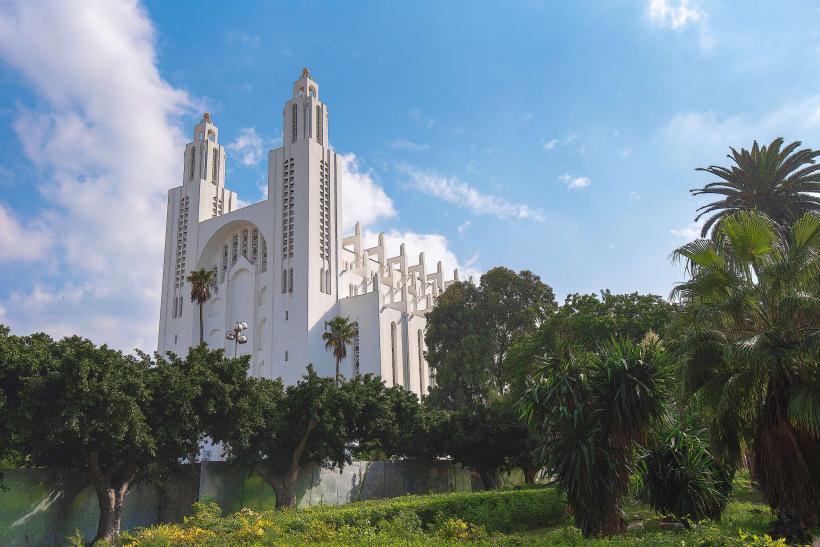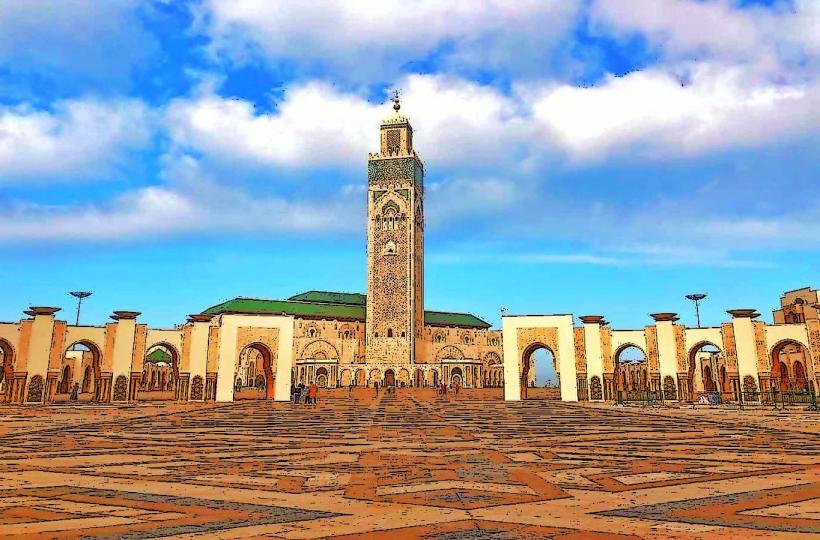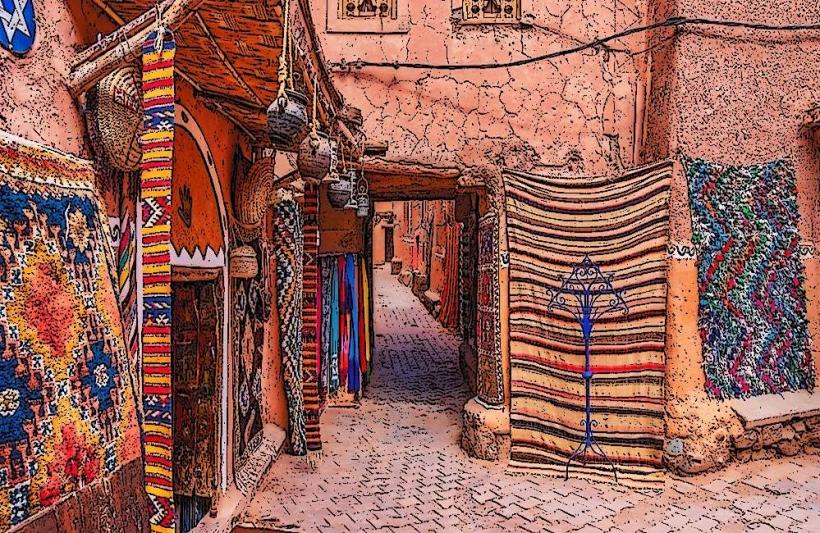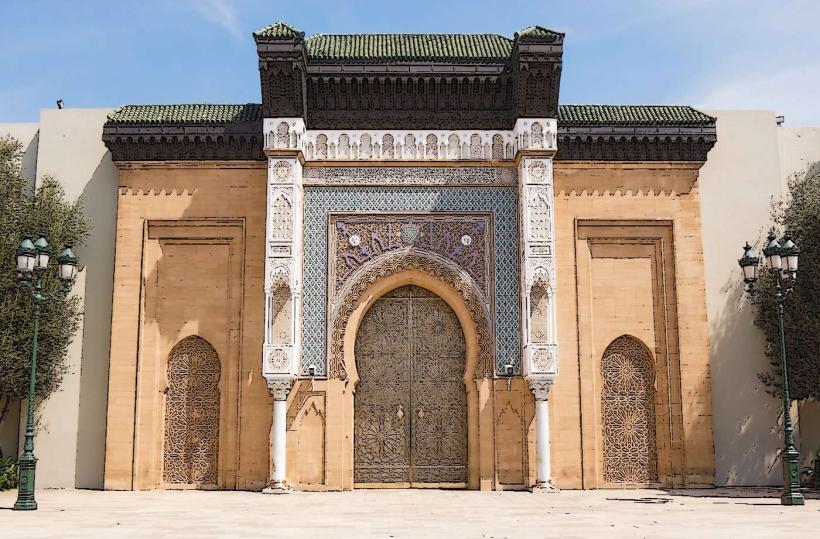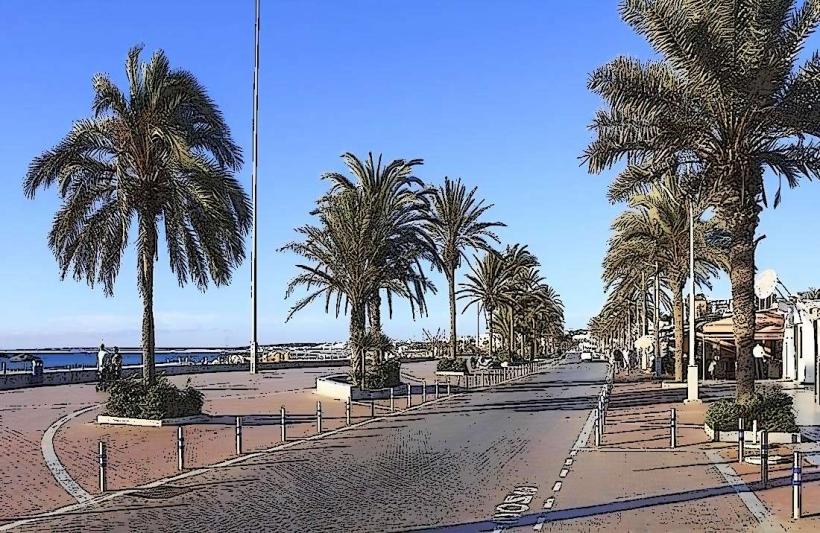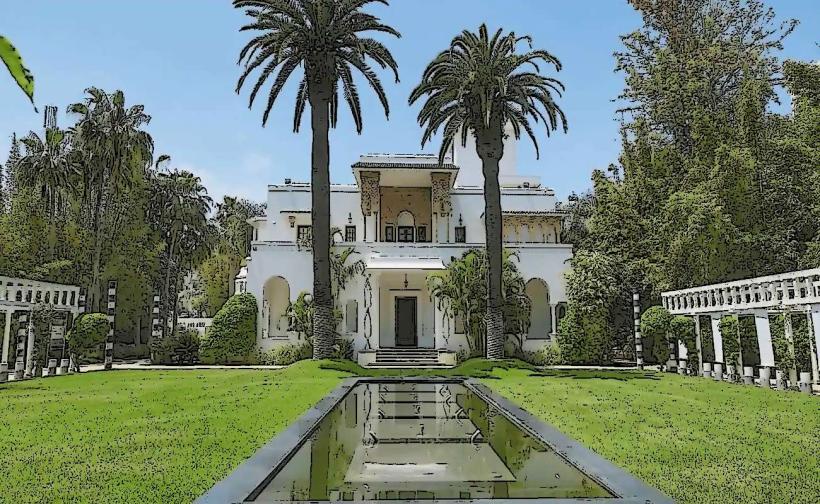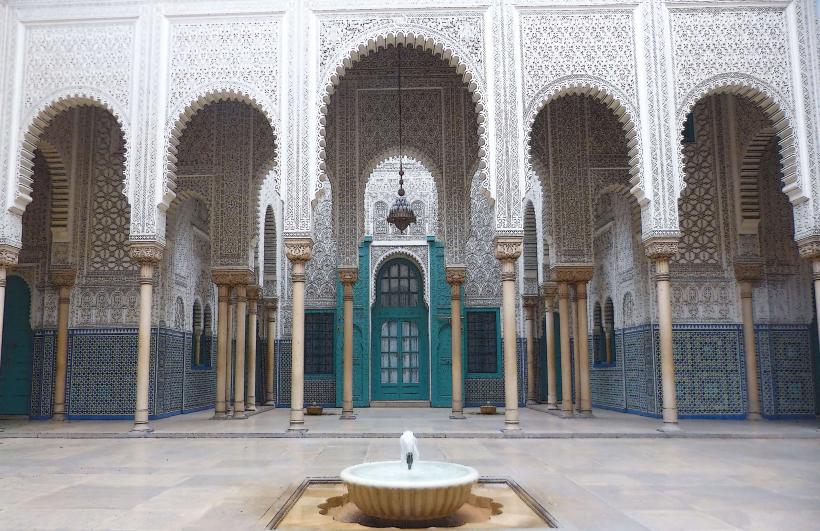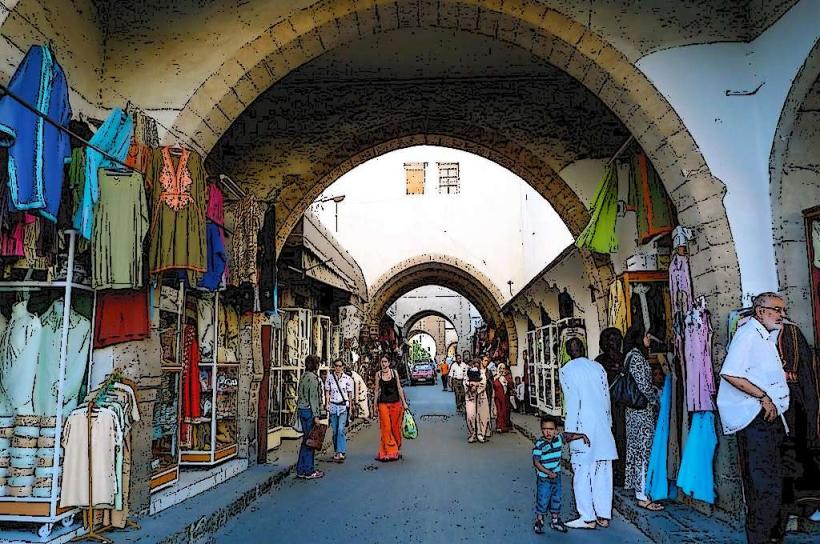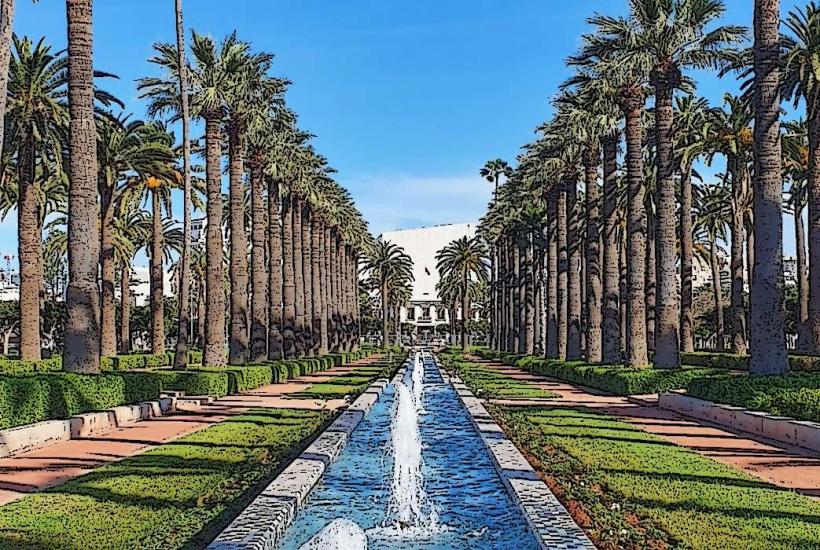Information
Landmark: Mohammed V SquareCity: Casablanca
Country: Morocco
Continent: Africa
Mohammed V Square, Casablanca, Morocco, Africa
Mohammed V Square is a central public space located in the heart of Casablanca, Morocco.
This urban plaza serves as a significant administrative and cultural hub within the city.
Visual Characteristics
The square is characterized by its geometric layout, featuring a large central fountain with tiered basins and water jets. Paved pathways intersect the expanse, bordered by manicured lawns and flower beds. Surrounding the square are several prominent buildings constructed in a blend of Art Deco and Neo-Moorish architectural styles. These structures typically feature light-colored stone facades, arched windows, and decorative tile work. The overall impression is one of formal symmetry and civic grandeur.
Location & Access Logistics
Mohammed V Square is situated approximately 1.5 kilometers south of the Casablanca Port and 2 kilometers east of the Hassan II Mosque. It is accessible via Boulevard Mohammed V, a major arterial road. Public transport is readily available, with multiple bus lines serving stops directly adjacent to the square. Tramway Line 1 also has a stop within a 5-minute walk. Parking is available in underground garages beneath the square and in surrounding streets, though it can be limited during peak hours.
Historical & Ecological Origin
The square was conceived and developed during the French Protectorate period, with construction largely completed in the 1930s. It was designed to be the administrative and civic center of the expanding city. The surrounding buildings were intended to house key government offices and institutions, reflecting the colonial administration's vision for Casablanca. The design emphasizes order and monumental scale, typical of urban planning during that era.
Key Highlights & Activities
Visitors can observe the central fountain's water displays, which are often illuminated in the evenings. The surrounding buildings, including the Wilaya (Provincial Government Headquarters) and the Palace of Justice, are notable for their architecture. The square is a common gathering point for locals and a site for public events and demonstrations. Walking the perimeter and observing the architectural details of the surrounding edifices is a primary activity.
Infrastructure & Amenities
Restrooms are available in the underground parking facilities. Limited shaded areas are provided by trees along the perimeter pathways. Cell phone signal (4G/5G) is generally strong throughout the square. Food vendors are not typically present within the square itself, but numerous cafes and restaurants are located on Boulevard Mohammed V and adjacent streets.
Best Time to Visit
For photography, the late afternoon provides favorable lighting on the building facades. The best months for visiting are generally from March to May and September to November, offering mild temperatures. The fountain operates throughout the day and into the evening.
Facts & Legends
A specific architectural detail to note is the clock tower on the Wilaya building, which has been a consistent landmark for decades. It is said that the clock's chimes have historically marked important civic moments for the city.
Nearby Landmarks
- Palais de Justice (Palace of Justice) - 0.1km West
- Wilaya of Casablanca (Provincial Government Headquarters) - 0.1km North
- Central Post Office - 0.3km Northwest
- Parc de la Ligue Arabe (Arab League Park) - 0.7km South
- Hassan II Mosque - 2.0km West

